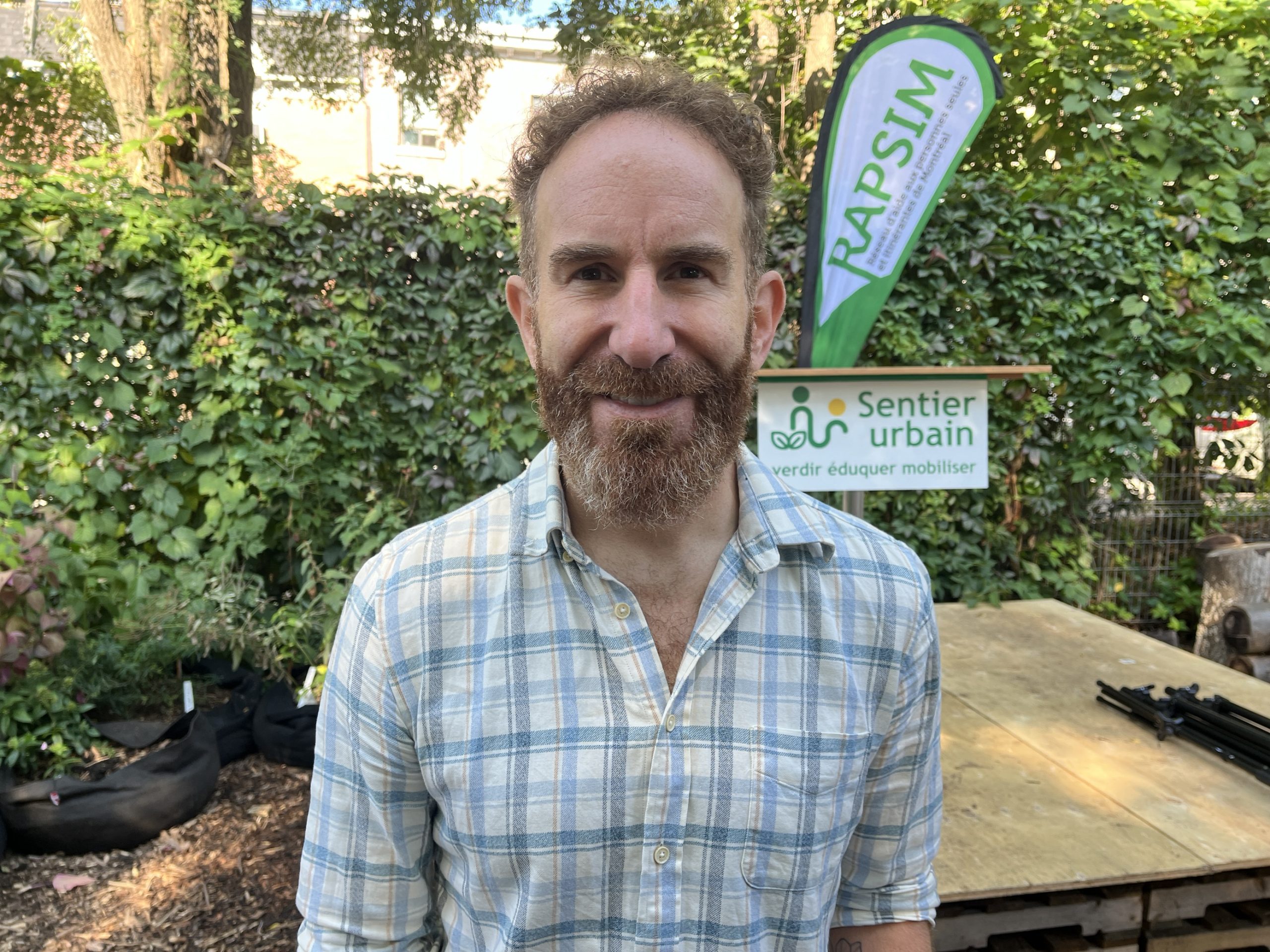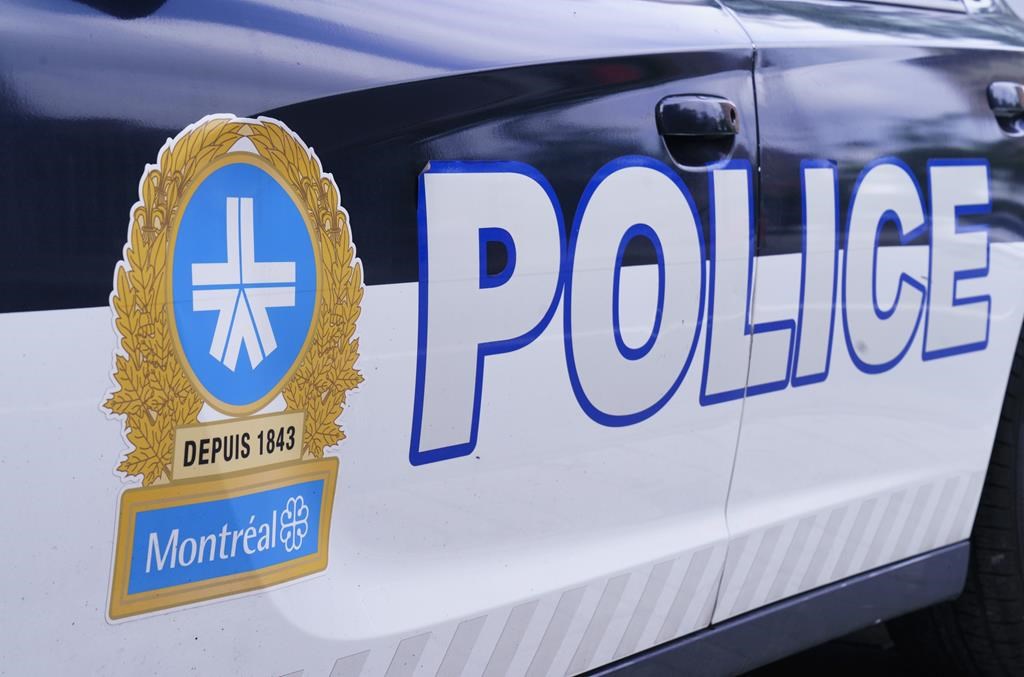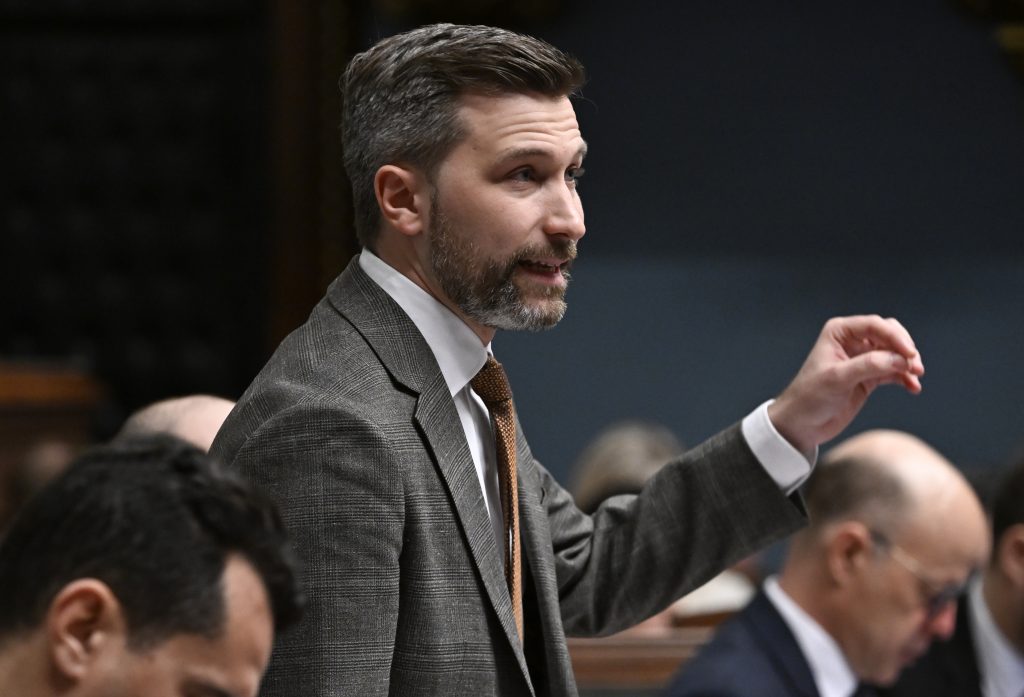Montreal police partnering with social workers harms homeless people: report
Posted September 20, 2023 10:49 am.
Last Updated September 21, 2023 6:14 pm.
Montreal police should not be working with health and social workers when dealing with the homeless in the city, according to a new report.
The report overseen by Concordia University professor Ted Rutland concludes that police partnering with health and social workers is an extension of repression rather than innovation.
The report criticizes what is known as “mixed squads” – when police are teamed up with health and social workers to engage the homeless population.
“Their mission is to, at the same time, respond to the calls of the police, businesses and residents who are upset by something that’s happening in the public space and respond to the needs of unhoused people,” said Rutland. “And so that’s a different mission from the police in general. But what we see on the ground is that you can’t actually combine those two missions very well. They’re going to serve primarily the interests of people who want unhoused people to not be there anymore.
“The goal of the report was to understand what are the effects of the mixed squads on unhoused people. What are their effects on community workers and what are their effects on the police in general.”
READ IN FULL: Montreal Mixed Squads Report
The analysis in the report was based on interviews with 38 outreach workers. They have been described as social innovation and a shift away from police repression.
But Rutland says this approach is indeed repressive and police should be removed from these groups.
“What actually happens is a mixed squad will come and they will displace somebody, which is a kind of repression,” he said. “Someone is where they need to be and they’re being displaced from it. There are also… there’s violence, harassment, etc. that occurs.”
The Concordia profesor presented the findings Wednesday in Montreal alongside members of RAPSIM (Réseau d’aide aux personnes seules et itinérantes de Montréal), a group of community organizations that help the homeless in Montreal.

Concordia University professor Ted Rutland with a RAPSIM flag behind him on Sept. 20, 2023. (Gareth Madoc-Jones, CityNews)
Outreach worker Isabelle Rochon-Goyer says the idea of mixed squads works in theory, but less so in practice.
“Just to be there, just to be a cop in the cop uniform (and) being armed, it’s not helpful for the people,” she said. “Because I think that even though the idea behind it is a good idea to try facilitate the work with the homeless… just being, having that status is harmful for the people that are homeless.”
SPVM, City of Montreal did not yet review report
CityNews reached out to the SPVM for comment. A spokesperson said by 10:45 a.m. Wednesday that the police force had “not yet had the opportunity to review the report.”
“Consequently, we are unable to comment on it at this time.”
However, on September 21, the SPVM responded with a second email. “The Service de police de la ville de Montréal (SPVM) has been involved in mixed teams since 2009, particularly with the aim of offering a service better suited to people in vulnerable situations by avoiding the use of repression. We believe that the diversification of complementary expertise is beneficial to the beneficiaries of the services,” said Anik de Repentigny, the communications manager for SPVM media relations, adding, “this type of initiative has the common objective of promoting better networking between public security services, social, health and community services, and the judicial system. We all have a role to play, it is a shared responsibility.”
Mixed squads were introduced in Montreal in 2009 and have grown in popularity since.
The City of Montreal also told CityNews Wednesday morning it had not had the chance to review the report, but said the “complexity of the issues affecting vulnerable people in the public space requires the intervention of several stakeholders,” including police officers.
At the same time, the city said it also “believes in the effectiveness of the non-mixed model.”
“Which is why we created the Équipe mobile de médiation et d’intervention sociale (ÉMMIS), which is an entirely civilian team that intervenes with vulnerable people in public space,” a city spokesperson said in an email.
“ÉMMIS stakeholders can act on immediate and specific situations in public spaces. Previously, only police officers could respond to social emergencies involving vulnerable people.”
In a statement to CityNews, the Société de transport de Montréal police officers are among the partners needed to “respond to various issues experienced in the public space.”
“Intervention in the public space with vulnerable people and people in crisis requires a set of responses and approaches from different institutional and community actors, according to the needs encountered in the public space,” a spokesperson said.
The report makes seven recommendations. One of them being that funding for police resources in mixed squads should be redirected towards community organizations working with the homeless.
“We’re talking about giving the budgets that are currently devoted to the mixed squads, to a civilian squad that will respond to 911 calls and to community organizations,” said Rutland.



